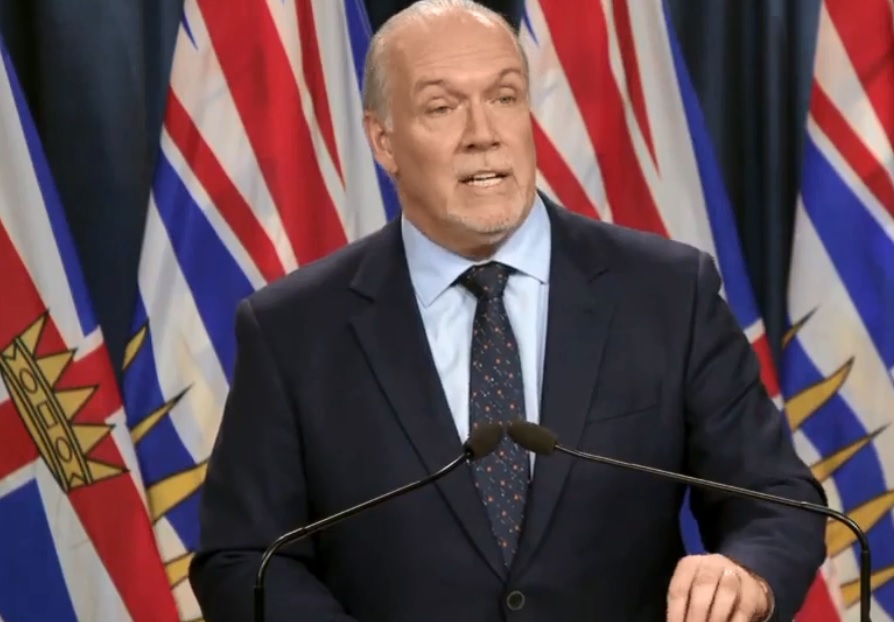The B.C. Government is moving to the next step in its Restart Plan, by transitioning to Phase 3. The transition means “safe and respectful” travel and tourism will be permitted within the Province.
“Thanks to the hard work and sacrifice of British Columbians, and under the guidance of the provincial health officer, we are now entering Phase 3 of our four-phase restart plan,” said Premier John Horgan. “As we carefully turn up the dial on our activity, we can now look to travel safely around the province. But as we hit the open roads this summer, we must remember we are not leaving COVID-19 behind, and we need to continue to do our part to bend the curve and protect the progress we’ve made.”
With the transition, businesses such as hotels, resorts, parks, theatres and other entertainment venues will be able to reopen their doors.
“Many businesses in these sectors have already started opening, with COVID-19 safety plans in place. Phase 3 will also allow more opportunities to travel safely and respectfully within the province,” said Horgan. “We believe that if we’re careful about how we approach communities we haven’t been to in a while, and we visit respecting their views and values, Phase 3 achievements will be as positive as Phase 2”
The province has set out a number of considerations that British Columbians should take into account when travelling to keep themselves and the communities they visit safe.
- Pre-trip planning and research on available resources at your destination.
- Respecting any local travel advisories to isolated and remote communities.
- No travelling for anyone who is sick, and if symptoms develop while travelling – self isolate immediately and contact 811 for guidance and testing.
- Practising safe physical distancing of two metres at all times.
- Spending time in small groups and open spaces.
- Practising good hygiene, including frequent handwashing and cleaning.
“Like other activities during our COVID-19 pandemic, summer holidays and travel will be different this year,” Premier Horgan said. “We are asking British Columbians to be respectful of the communities you travel to and do your research before you leave. We will help people get the tools and information they need to navigate this new normal safely.”
Most of the businesses listed in Phase 3 of B.C.’s Restart Plan now have the guidance they need to safely begin to open. Guidelines for hotels and resorts, parks, the film industry and select entertainment, like movie theatres, have been developed by WorkSafeBC, public health officials and industry representatives.
Despite tourism businesses opening back up, Horgan said the Canada/U.S. border will remain closed, as case numbers in the United States have risen at a much faster pace.
“We’ve seen spikes in cases just to the south of us in Washington state, as well as Idaho, Oregon, Nevada, Arizona and California. These are traditionally the people who would come to British Columbia in the summer to enjoy our tourism attractions. That’s why it’s so critically important that we continue to work with the federal government to keep our international border closed,” said Horgan.
“We’ve succeeded in flattening the curve by working together, but COVID-19 will continue to be in our province until we have an effective treatment or vaccine. By staying vigilant and following our foundational rules, we can safely do many of the things that we enjoy for the months to come,” said Dr. Bonnie Henry, provincial health officer.
The government has also extended the provincial state of emergency by another two weeks, allowing the province to continue to use powers under the Emergency Program Act to support the Province’s COVID-19 pandemic response. The state of emergency will remain in effect until at least July 7th
“We’re extending the provincial state of emergency, while we work to keep the economy moving and provide more opportunities for B.C. businesses to welcome our communities back,” Farnworth said. “We’ve also introduced legislation that will allow us to put longer-term solutions in place, so we can continue to provide the support British Columbians need to get through this crisis.”
On Monday, June 22nd, the B.C. Government introduced the COVID-19 Related Measures Act, legislation to allow provisions created for citizens and businesses in response to the COVID-19 pandemic to continue as needed after the provincial state of emergency ends.
More from the B.C. Government on the matter is below:





